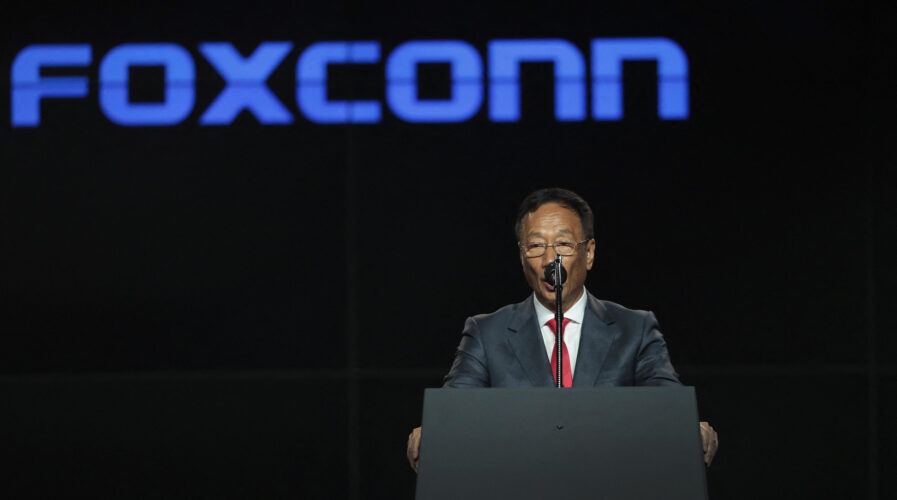
Taiwan cranks up its EV battery development. (Photo by SCOTT OLSON / GETTY IMAGES NORTH AMERICA / Getty Images via AFP)
Taiwan cranks up EV battery development
- A large part of Taiwan-based battery suppliers have been assembling battery modules for Taiwan’s ICT industry.
- ProLogium, a Taiwan-based supplier that is pushing the development of solid-state batteries, while working with China-based companies.
- Taiwan-based manufacturing giant expects to develop a sample solid-state battery this year and to start commercial production in 2024.
In Taiwan, the supply chain for electric vehicle (EV) components is relatively complete. Companies such as Tesla rely heavily on Taiwanese suppliers for a majority of their EV parts. When it comes to EV battery development, the country’s electronics manufacturing giant, Foxconn Technology Group, is working towards commercializing solid-state batteries by 2024.
Locally known as Hon Hai Precision Industry Co, the company plans to introduce demo solid-state battery products by the end of this year after investing in the development of two kinds of EV batteries: solid-state batteries and lithium iron phosphate (LPF) batteries. Electric cars are at the top of Hon Hai’s business agenda in 2021 and the company remains focused on taking a 10% share of the global electric car market.
ProLogium, another Taiwan-based supplier that is pushing the development of solid-state batteries, is already working with China-based FAW Group, Enovate Motors, NIO, and Airways.
According to a report, some manufacturers pointed out that it is rather late for natural resource-starved Taiwan to invest in lithium-ion battery development at this moment and believe Taiwan should establish its presence in the EV sector through developing next-generation batteries.
Taiwan’s foundation in EV battery manufacturing
Taiwan’s battery industry may not be backed by well-known brands and abundant natural resources. Nevertheless, a large part of Taiwan-based battery suppliers have been assembling battery modules for Taiwan’s ICT industry.
For example, Simplo, Dynapack, and Celxpert, all of whom have a long-term focus on manufacturing battery modules for consumer electronics such as notebooks, only started to set foot in EV battery solutions in recent years.
Aside from battery module assemblers, Taiwan also has upstream suppliers of anode and cathode materials including CoreMax, Mechema, Aleees, E-One Moli, and Formosa Lithium Iron Oxide Corporation for supplying anode materials and China Steel Chemical and Chang Chun Group for cathode ones.
Although these suppliers may provide materials to customers producing batteries based on different technologies, their materials are mainly used in ternary lithium-ion batteries and lithium iron phosphate batteries that use LFP and LFPO for anode.
Tesla’s rising popularity has spurred a wave of demand for ternary lithium-ion batteries, while the company’s decision to adopt LFP batteries for its EVs for China has also surprised the supply chain. However, these are all “current” developments of the battery industry.
Can Taiwan catch up with global EV battery development?
Experts reckon if Taiwan only now starts to build its own patent portfolio from scratch, it will be difficult to catch up with or compete against international manufacturers that have long been devoted to lithium-ion battery development.
Taiwan should perhaps also seek joint development opportunities from international manufacturers. Given Taiwan’s accumulated experience and technological strength in the ICT sector, the country can leverage it to help expand the applications for solid-state batteries.
Perhaps, that way, Taiwan-based battery suppliers will still have a shot at establishing a stronger market presence.


